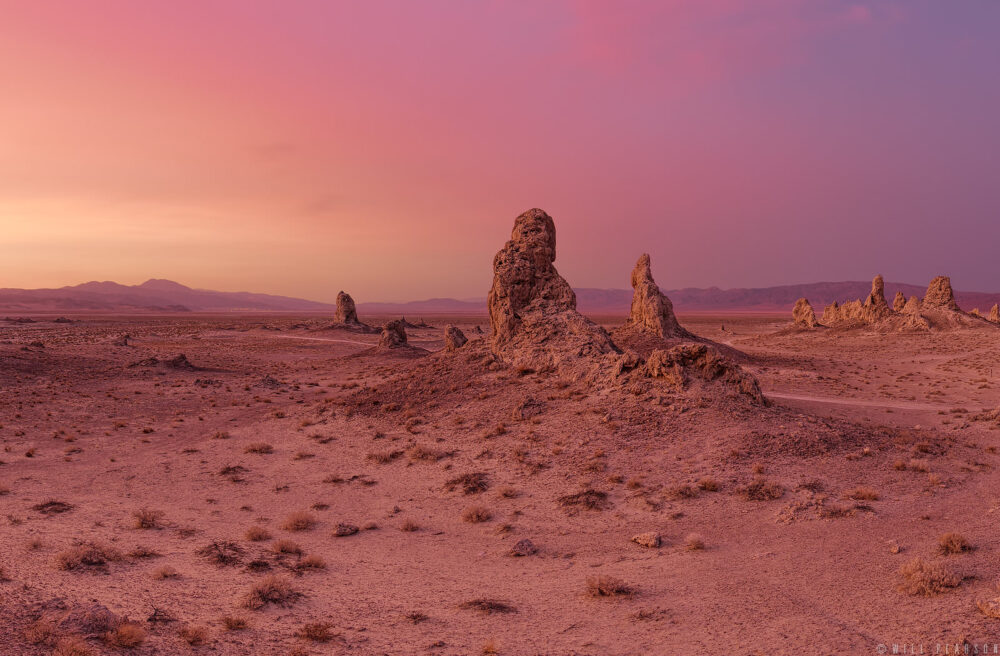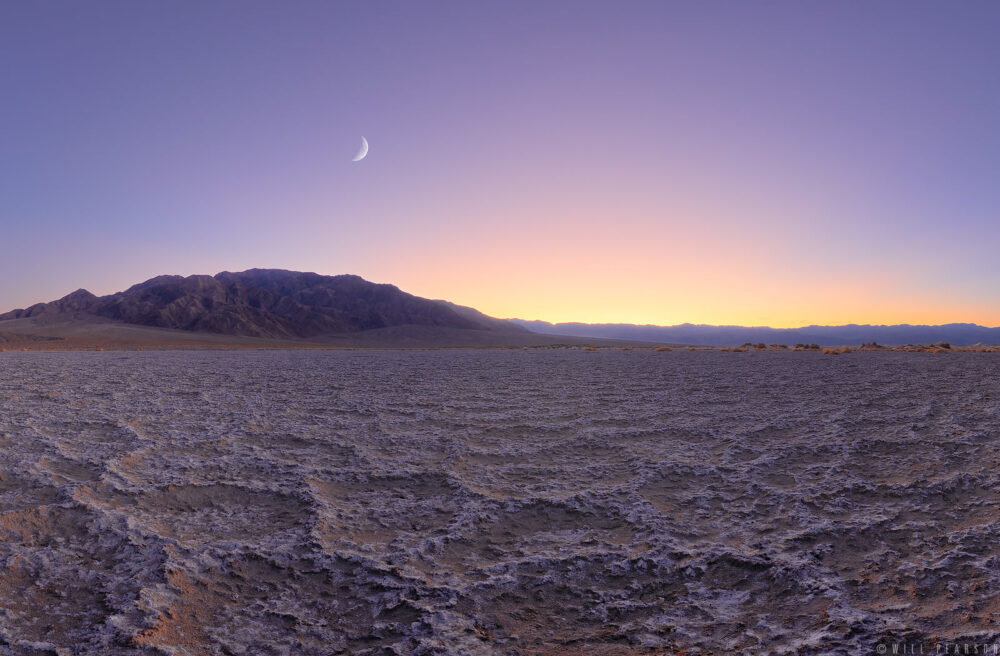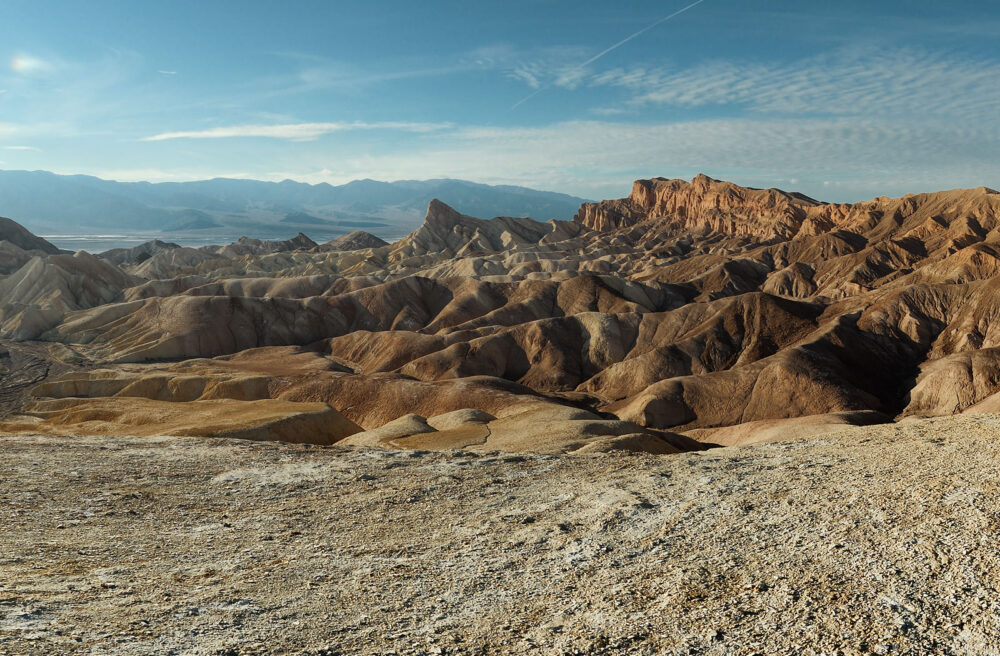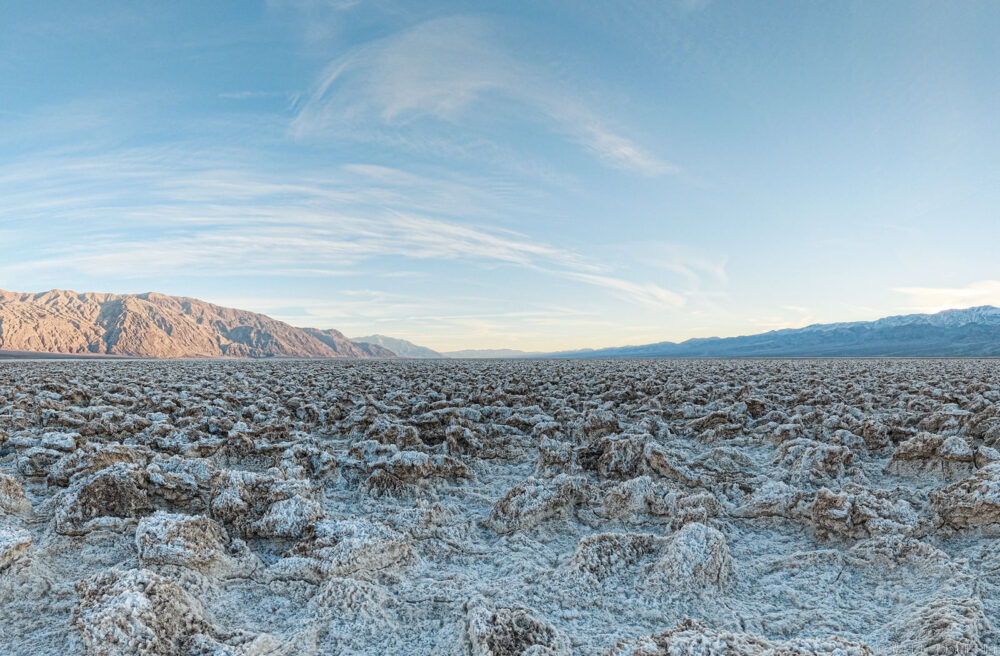Death Valley
Situated within the Mojave Desert, Death Valley gained its English name in 1849 during the California Gold rush. It’s the lowest part of land in North America, reaching 86 metres below sea. The driest place in North America, and the hottest place on earth, temperatures have been recorded at 57 degrees centigrade (134 degrees farenheit). It’s a dangerous area to travel through as the name suggests, other places within the Death Valley National Park also echo this sentiment – Furnace Creek, the Devil’s Golf Course, the Devil’s Cornfield and Badwater Basin. But it’s also a beautiful, richly diverse landscape of mountains, valleys, canyons, salt flats and sand dunes.
-
54.4˚C at Trona Pinnacles
I knew it was going to be a hot day photographing the Trona Pinnacles in the Mojave Desert, Southern California, but I hadn’t anticipated quite how hot. We clocked the temperature at 54.4C (130 F), only a couple of degrees centigrade off the all-time world record temperature (56.7C or 134 F), registered at the Furnace…
-
The Devil’s Cornfield, Death Valley
Death Valley is a place of extremes. In the USA it holds records for these extremes: the hottest place (134°F / 56.7°C), the lowest place (86m below sea level), the darkest night sky in the USA. Since being designated as a National Monument, Death Valley has grown to 3.4 million acres, and is one of…
-
Zabriskie Point
Zabriskie Point is a dramatic natural feature in Death Valley, California, formed by sediment from an ancient lake, long since dried up. Named after the vice-president of the Pacific Coast Borax Company, it was made famous as the location of the love scene in Antonioni’s 1970 film, Zabriskie Point.
-
The Devil’s Golf Course, Death Valley
The Devil’s Golf Course is a huge area of of rock salt left behind when the lake which used to cover the area evaporated about 10,000 years ago. The rock salt has been formed by the elements into jagged peaks. The area was apparently named for a line in a 1930’s National Park Service Death…




